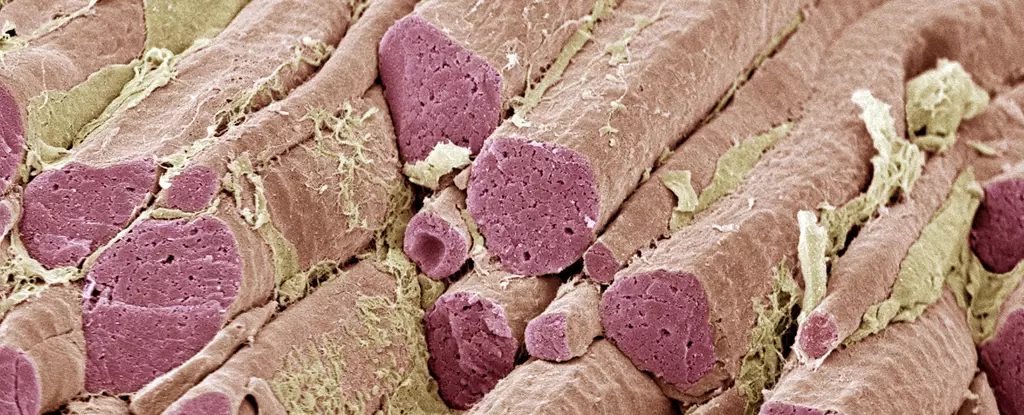Recent research has revealed a groundbreaking discovery in fruit flies that sheds light on the connection between inflammation and impaired motor function. This finding offers a potential target for addressing the persistent muscle fatigue that often follows infections, particularly in the context of long COVID. The impact of this research extends beyond simply feeling unwell to a tangible reduction in energy levels within skeletal muscle, hindering normal movement and functionality.
The enduring effects of COVID-19 are becoming increasingly evident, with a growing number of individuals experiencing lingering symptoms, including a decreased tolerance for physical exertion. This symptom, along with others associated with long COVID, poses significant challenges for patients. Muscle fatigue, a common occurrence in various post-viral conditions and neurodegenerative diseases, can be linked to inflammation in the central nervous system.
Using animal models, researchers have identified a signaling pathway between inflamed neurons and muscles in fruit flies and mice. This pathway, activated by proteins associated with COVID, bacterial infections, and Alzheimer’s disease, results in impaired motor function. Even after the initial infection is resolved, the impact on muscle performance persists, highlighting the potential chronic nature of this phenomenon.
In humans, inflammation triggers neurons to release interleukin-6 (IL-6), which then travels to muscles via the bloodstream. Once in the muscles, IL-6 activates the JAK-STAT cellular program, reducing energy production in mitochondria. The implications of this process extend beyond specific diseases, suggesting a broader impact on muscle function across various conditions.
By blocking the signaling pathway in animal models, researchers have demonstrated that the detrimental effects on muscle function can be reversed. Previous studies in mice have shown success in using IL-6 inhibitors to treat autoimmune diseases, offering a potential avenue for addressing the impact of inflammation on muscle performance. These findings open up new possibilities for targeted treatments in individuals suffering from chronic conditions.
The researchers propose that chronic cytokine signaling, initiated by respiratory infections like COVID-19, plays a key role in the persistent effects of long COVID. This ongoing signaling between the brain and muscles may contribute to the prolonged muscle fatigue experienced by individuals with long COVID. Understanding this process is essential for developing effective interventions to alleviate the physical burden imposed by chronic conditions.
While this research brings valuable insights into the link between inflammation and muscle fatigue, there are still unanswered questions, such as how SARS-CoV-2 enters the central nervous system to trigger inflammation. Further investigation is needed to fully grasp the implications of this brain-muscle axis activation and its consequences on the body. By exploring the role of chemicals secreted by neurons, researchers aim to uncover new strategies for mitigating the physical effects of inflammatory conditions.
The recent discovery regarding the connection between inflammation and impaired muscle function provides a foundation for understanding the impact of chronic conditions on physical performance. By unraveling the intricate pathways involved in this process, researchers are paving the way for innovative treatments that target the underlying mechanisms of inflammation-induced muscle fatigue. This research not only sheds light on the complexity of long COVID but also offers hope for individuals contending with a range of chronic conditions.


Leave a Reply